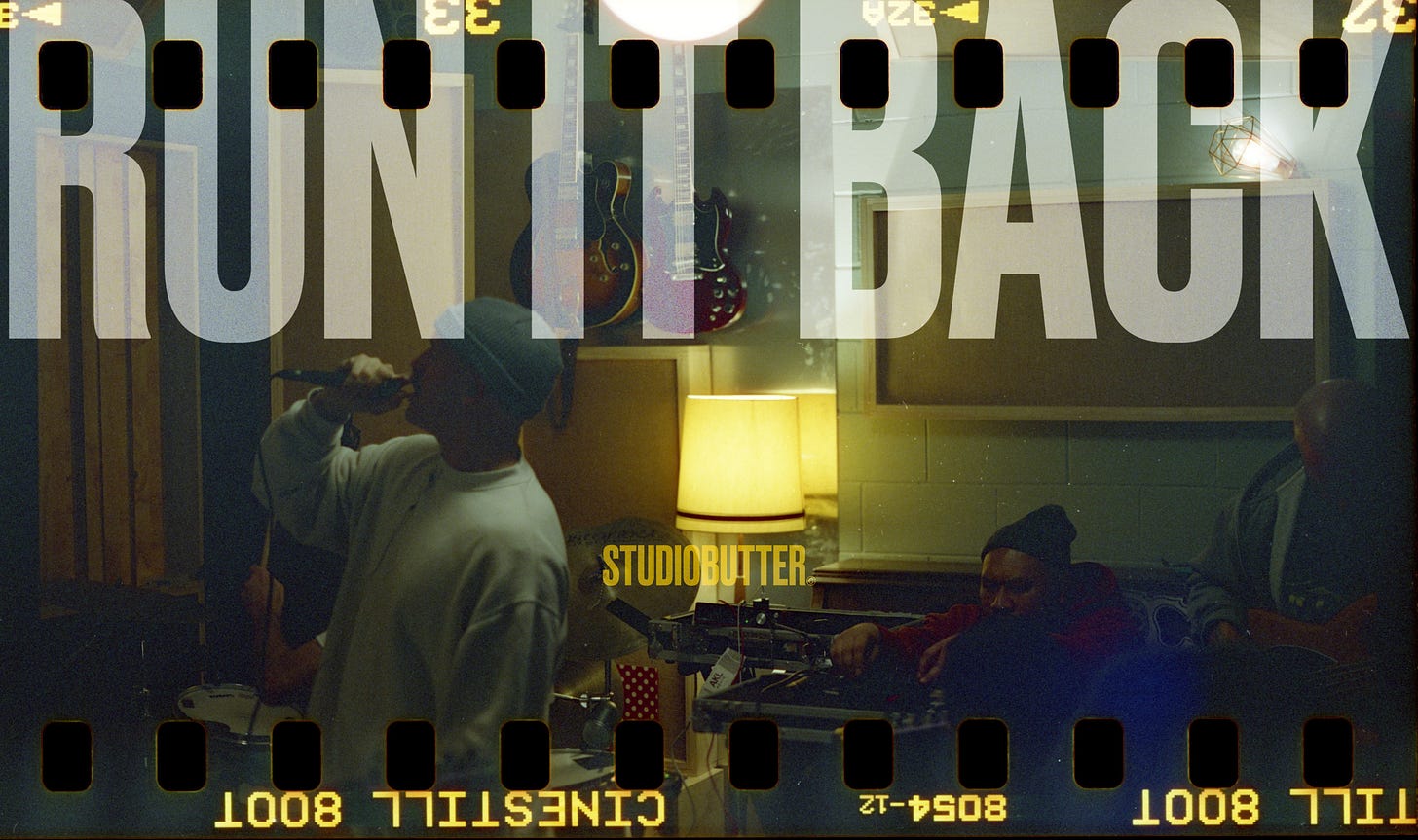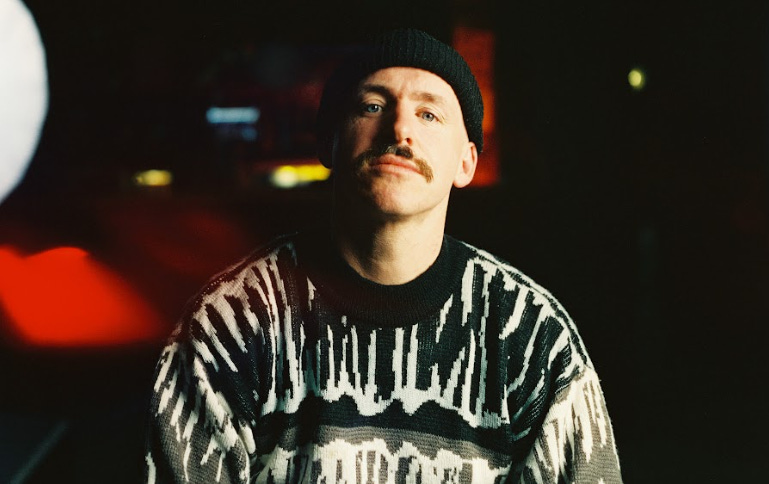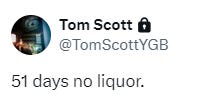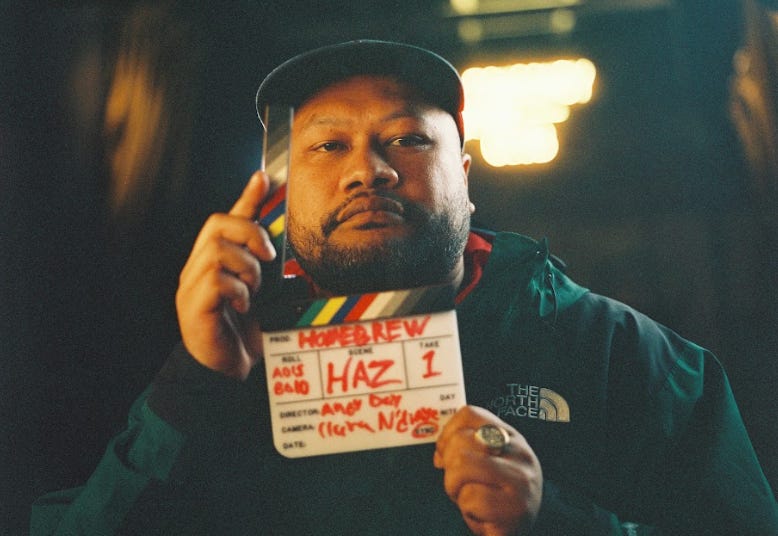'What can you do? I did this to myself.'
How the most important New Zealand music documentary of 2024 was made.
It is jarring.
It is intense.
It is, at times, really quite brutal.
It’s also the must-see New Zealand music documentary of 2024 – and it’s only mid-February.
Once you’ve seen it for yourself, it’s really the only way you can describe Run It Back, a two-part YouTube documentary that follows the local hip-hip group Home Brew as they prepare to release their first new album in 11 years.
It is many things all at once: a bruising exposé of a young rap group on the bones of their ass, broke, burnt out, struggling with addictions and ready to give it all away; an in-depth examination of that same band 11 years on as they reconciliate and reckon with the demons of the past; and the perfect example of how looking back can sometimes be the only way to move forward.
Home Brew has a controversial history, one I’ve covered in bits and pieces here, like the time they infiltrated the NZ Herald offices in ski masks, watched porn and inadvertently caused the downfall of a local music magazine.
I also hung out with front man Tom Scott around the time of the release of Avantdale Bowling Club’s celebrated first album when he was in a similarly reflective mood, and loved my time with him.
If you don’t like Home Brew, I get it. For a while there, I didn’t either.
But, love them or loathe them, you should still watch Run It Back.
Because this documentary is incredible.
This made me feel things.
I needed to know more.
So I called Andy Day, the film’s director.
It turns out his documentary was never supposed to be quite so full-on.
It was never meant to grow so big it would be released in two parts.
And it was never supposed to be nearly 70 minutes long.
It was meant to be an afterthought.
He’d been approached by Scott, an old friend, about making a short YouTube video to be released alongside the new Home Brew album, last year’s Run It Back (one of my best albums of 2023).
Instead, it quickly grew into a monster.
“We did a few interviews … and we realised how big the story actually was,” Day told me when I called him for a quick chat recently.
“We completely blew our budget,” he says. “It was like making a feature film … for nothing.”
The results are intimate, emotional and intensely personal, a wild ride that very much reminds me of last year’s excellently unhinged King Loser film.
For anyone who has followed Home Brew’s journey from their days as New Zealand hip-hop’s bad boys, there’s plenty of historical footage to bring back those memories: taking a goat to the NZ Music Awards, becoming local hip-hop anti-heroes as they toured the country on the back of their 2012 debut, and Scott’s rise into the charismatic and beloved front man and storyteller he is today.
Scott was a big part of Day’s problem. “You can sit there and talk to Tom for three hours and two hours and 50 minutes of it is pure gold,” he says. “He was so ready to tell his story.”
It’s true. This is, mostly, a deep dive into Scott’s tortured soul. Throughout, he uses the documentary like a therapist’s couch to reflect on his past lives.
“The pyramids dissolve eventually … we all fucking die,” he says at one point. “My legacy is my kids. They’ll die though. That’s the fucked up thing, eh?”
Crucially, though, he finds time to drop some very big reveals (spoilers follow):
That at the peak of Home Brew’s first run of success, Scott nearly died after overdosing on lean in a Sydney hotel room.
That their goat skit at the New Zealand Music Awards in 2012 was part of a Curb Your Enthusiasm-style movie they were making; the pressure became too much and they cancelled it, and a follow-up album, forcing them into major debt.
That, during the making of Run It Back, Scott and Home Brew’s producer Harry ‘Haz Beats’ Huavi, were going through major relationship dramas, much of which informs the music. (Day was going through his own divorce as he filmed them.)
That despite writing music that celebrates drinking and drug-taking, Scott is, for the first time in his life, proudly sober.
Day says he left his interview sessions with Scott with his head spinning.
“He fucking insightful,” he says. “But it’s a bit like mental jujitsu. That's why you come away feeling exhausted because you can't keep up with his brainwaves.”
While he’s not quite as open about his own problems, and also not quite as sober, Huavi has his own moments of reflection too.
“Everyone does things they regret. I’m trying to work it out with my partner,” he admits at one point. “What can you do? I did this to myself.”
The reaction to his documentary has been similar to the one I had, Day says.
“People have come out of the woodwork I haven't talked to in years,” he says. “It's been the best reaction to any piece of content I've ever been involved with.”
It’s going so well that he’s in conversations with local streamers to turn it into a proper, full-length feature documentary. “There are talks … they look promising,” he says.
If so, there’s plenty more footage sitting on the cutting room floor, waiting to be reinstated in the film. “There’s still a bunch that didn’t make it to light,” he says.
“It’s a wait and see.”
Watch parts one and two of Run It Back:
A quick note: I just want to say thanks to every single reader and supporter of Boiler Room. New Zealand media is in a dire state right now and the reports coming out of local newsrooms are beyond bleak. I’m trying to create my own little corner here that’s trustworthy, relevant, and most of all, fun. I’m just really happy I still get to do this, so, again, thanks to you lot for making that happen.








Hey Chris - trying to find a way to contact you - Im the PR for the upcoming Ville Valo tour in March and have interviews avail with him - can you email me at chris@maricmedia.com Cheers, Chris
https://mailchi.mp/ccc9e29bc8c5/ville-valo-announces-australian-nz-tour-for-march-2024?e=288de0a7ad